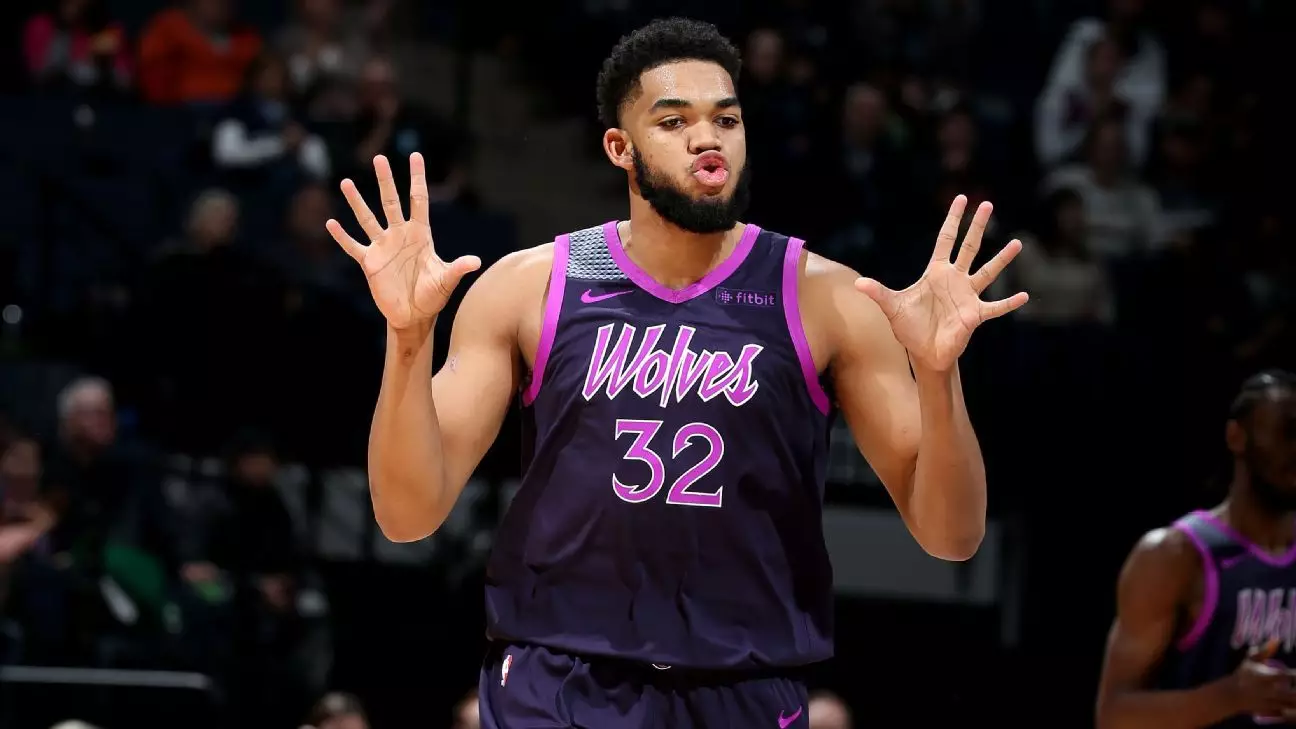The NBA landscape is constantly shifting, with teams jockeying for position to secure their futures. Recently, the New York Knicks have made headlines by finalizing a significant trade with the Minnesota Timberwolves. This trade, which is set to send four-time All-Star Karl-Anthony Towns to New York in exchange for Julius Randle and Donte DiVincenzo, represents a bold move by the Knicks as they aim to bolster their roster just in time for the upcoming season.
The negotiations between the Knicks and Timberwolves escalated rapidly over a short time frame, culminating in a deal that not only impacts the two franchises but also reverberates throughout the league. Accompanying the player swap is a first-round pick from 2025—protected for the top-13 selections—acquired from the Detroit Pistons, further indicating strategic maneuvering by the Knicks to secure flexibility in the future. The trade also involves the Charlotte Hornets, who are adeptly stepping in to absorb additional salary cap figures, showcasing the collaborative nature and complexity of modern NBA trades.
The infusion of Towns into the Knicks’ lineup is monumental, providing not just a star player but also someone who has consistently performed at a high level throughout his career. His former coach, Tom Thibodeau, who guided him during his first NBA years with the Timberwolves, is now poised to maximize Towns’ strengths in New York, creating expectations for both players and fans alike.
Karl-Anthony Towns is a transformative player, possessing a diverse skill set that allows him to thrive both inside the paint and beyond the arc. Having averaged 23 points and 12 rebounds per game during his career in Minnesota, Towns is no stranger to statistical excellence. His ability to stretch the floor as a shooting big man provides the Knicks with a tactical advantage, particularly as they’ve struggled with depth at center following Mitchell Robinson’s recent ankle surgery.
The impending partnership between Towns and Jalen Brunson adds an intriguing layer to the Knicks’ offensive strategy. Brunson’s playmaking capabilities complement Towns’ offensive skill set, potentially setting the stage for a highly effective pick-and-roll duo. Furthermore, Towns brings the experience and leadership that the Knicks aspire to build a sustained competitive future around.
While the acquisition of Towns is seen as a monumental gain, the departure of Julius Randle and Donte DiVincenzo cannot be overlooked. Randle, who played a pivotal role in the Knicks’ resurgence and was named an All-Star two seasons ago, had entered a crucial period of rehabilitation after shoulder surgery. His absence from the recent playoffs due to injury bore significant weight on the team’s performance, highlighting the risk of relying too heavily on one player’s contributions.
Meanwhile, DiVincenzo’s journey from being an unsung hero to an impactful playoff performer this past season (averaging 17.8 points in the postseason) solidifies his growing reputation. His exit opens up questions about the Knicks’ depth on the wing, adding pressure to their existing roster to step up their game in hopes of filling that gap.
The Timberwolves, on the other hand, find themselves in a position to rethink their roster dynamics. Parting ways with the franchise cornerstone in Towns signals a potential shift in their long-term strategy. Acquiring Randle, who has a track record of All-Star caliber performances when healthy, could provide Minnesota with a viable centerpiece to complement young talent like Anthony Edwards.
Moreover, this trade comes at a pivotal moment, as the Timberwolves seek to recalibrate their ambitions following a successful yet ultimately disappointing postseason run. The trade reflects the organization’s willingness to adapt and innovate as they pursue their goals within a competitive Western Conference landscape.
With the trade for Karl-Anthony Towns, the New York Knicks are clearly signaling their ambition to return to NBA prominence. By adding Towns to their roster, they hope to forge a new era characterized by competitive play and significant postseason success. As the new season approaches, all eyes will be on New York—could this trade be the catalyst for transformation, setting the stage for the Knicks to finally return to championship contention? Only time will tell.


Leave a Reply